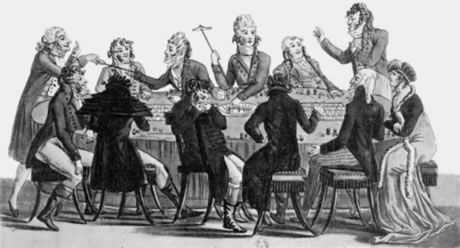Roulette History
The History of Roulette
Roulette is close to three hundred years old, but no one knows for certain how it originated. One story claims that it was invented by a French monk in order to relieve the tedium of monastic life. More commonly accepted is the theory that roulette was invented by Blaise Pascal, a French philosopher and mathematician, who was intrigued by the concept of perpetual motion. His experimentation with the concept led him to develop a “little a wheel” (the French for this is “roulette”).
In 1720, we have the first recorded account of the combination of this roulette with a spinning ball, a game in England that was then called “roly-poly.” Because of wagering disputes, the Gaming Acts of 1739 and 1740 banned roly-poly. However, a form of it was reintroduced by Beau Nash under the name of “EO” (an abbreviation of “even-odd”). While the new game was simpler, it didn’t do any better legally. In 1745, EO was also banned.

Around 1842, the modern version was created by two brothers, Francois and Louis Blanc. They were the first to introduce the zero as a way of increasing the house’s edge to 2.7%. When the game spread to America, a second zero was introduced to further increase the house odds, to 5.3%. A legend says that Francois Blanc bargained with Satan for the secrets of roulette. It is true that if you add up all of the numbers on a roulette wheel (1 through 36), you come up with the total of 666 – also known as the “number of the beast,” a sign of the devil himself.
Prince Charles of Monaco persuaded Louis Blanc to bring his now-famous roulette wheel over to the tiny principality, which was having financial problems, and introduce gambling. The casino of Monte Carlo cost 2 million French francs to build, but it established the casino and Monaco as the center of sophisticated, glamorous European gambling. It also set the standard for casinos around the world.
Around the time of the great gold rush in the 1800’s, America went wild over roulette, and for gambling in general – an enthusiasm for roulette that lasted up until World War II. Its popularity declined after the war, and it continued to decline after people started to turn to blackjack. Edward O. Thorpe advanced his theories on basic blackjack theory in 1963, which convince many that blackjack was beatable.
However, in our current age, roulette still maintains a place in the gambling world, along with casinos and a plethora of other games. Today we can bet on just about anything. With the widespread usage of the Internet, online gambling and casinos have rocketed over the past 10 to 25 years. Who knows where it will take us next?
How to play Roulette | History of Roulette | Tips for Playing Roulette | Roulette Strategy
LINK TO THIS PAGE: